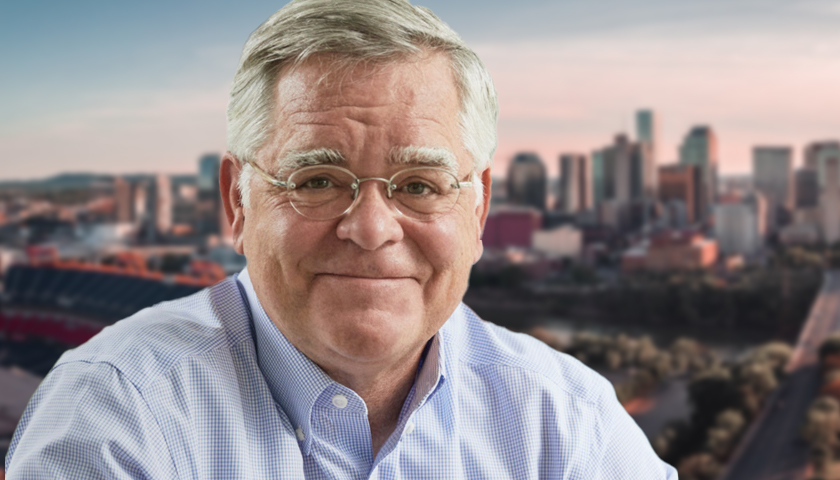by Jon Styf
Nashville Mayor John Cooper sent letters to both the Republican and Democratic parties expressing interest in the city playing host to the 2028 national political conventions.
But the benefits of being the host to those events for Nashville and Tennessee residents wouldn’t be as advertised. Economists E. Frank Stephenson, of Georgia’s Berry College, and Victor Matheson, of Holy Cross, have extensively studied the benefits of being a host city for conventions over the past 20 years and have found, while there is an increase in hotel occupancy, the benefits never add up to the claimed benefits.
Matheson also pointed out they can be a “security nightmare” and disrupt the rest of a city’s operations. Boston closed Interstate 93 through the city due to security concerns during the 2004 Democratic National Convention while attendance dropped 20% for Broadway shows during the 2004 Republican National Convention in New York.
A 2017 paper from Stephenson, Matheson and Lauren Heller showed conventions typically bring in $20 million in increased hotel spending, making the average claims of a $150 million direct impact for a city highly unlikely.
An updated paper from Heller, Stephenson and Abhi Aurobindo then showed that, in 2016, the Republican National Convention brought in $19.5 million more hotel spending while the Democratic National Convention had a $39 million hotel impact in Philadelphia. Hotel rates were at least $100 more than average during the conventions.
Cleveland claimed the convention led to $110.1 million of direct spending, and $188.4 million of economic benefit while Philadelphia claimed the convention brought in $132.9 million of direct spending and $230.9 million of economic impact.
“Since visitor inflows are one of the most important factors in the overall economic benefit associated with hosting a political convention, our results imply that large claims of economic impact are likely to be substantially exaggerated,” the paper said.
Matheson noted convention visitors certainly spend money outside of hotels as caterers have increased business and security is brought in from throughout the country, but the hotel spending and security spending then leaves the host city immediately after the convention as security returns home and hotel revenue is sent to parent companies outside of Nashville.
The security costs are funded by the federal government. A proposed agreement to hold the 2024 Republican National Convention in Nashville included a $50 million federal security grant.
“There are some things that are worth subsidizing and one of them is democracy,” Matheson made clear.
The letters come as the Tennessee Legislature is considering legislation to do everything from cutting the bond funding sources for the Music City Center to cutting the size of Metro Nashville’s council from 40 to 20 to taking control of the board member assignments for the sports and airport authorities after the Metro Nashville council voted against hosting the 2024 Republican convention.
Cooper and House Speaker Cameron Sexton spoke about the letters of convention interest after they were sent.
“The speaker very much appreciates the mayor’s leadership in finalizing and sending the letters of interest to the RNC and DNC for the 2028 conventions,” according to a statement from Sexton spokesperson Doug Kufner. “The bi-partisan host committee will reassemble and continue in their goal to bring a national convention to Nashville.
“The speaker is hopeful Nashville will be selected as the host city. He looks forward to continuing to work with Mayor Cooper for the betterment of Nashville and Tennessee in the years ahead.”
The letters were sent as the Metro Nashville council is scheduled to receive final documents in March to approve public funding and a new lease for a $2.1 billion new stadium for the Tennessee Titans. The enclosed stadium is scheduled to open in 2026, two years ahead of the convention.
Like the Music City Center, a new Titans stadium deal would include a tax fund that is set to collect $2.9 billion in taxes over a new 30-year lease to pay off revenue bonds on a new stadium as well as paying for future capital improvements to the stadium.
Council member and East Bank Stadium Committee Chair Bob Mendes has written about his opposition to the project and noted that the state Music City Center funding bill calls into question whether Tennessee will hold up its end of the bargain in stadium funding. At Thursday’s committee meeting, Mendes noted that the city needs to have assurances regarding control of the sports authority before a deal is made.
“We can’t take the risk of having a $2 billion stadium and related development controlled by an authority that we don’t control,” Mendes said. “The state has injected that risk and they can’t un-ring the bell on that risk. It’s out there and we need to have something built into the deal about that.”
Matheson noted that economists wouldn’t “shed any tears” if disagreements about the convention led to the city or state providing less incentive money toward a new football stadium, which is scheduled to receive $1.26 billion in public funding for its construction, the most public funding any stadium has received.
– – –
Jon Styf is an award-winning editor and reporter for The Center Square who has worked in Illinois, Texas, Wisconsin, Florida and Michigan in local newsrooms over the past 20 years, working for Shaw Media, Hearst and several other companies.
Photo “Tennessee Mayor John Cooper” by City of Nashville. CC BY-SA 4.0. Background Photo “Nashville Skyline” by Tanner Boriack.








